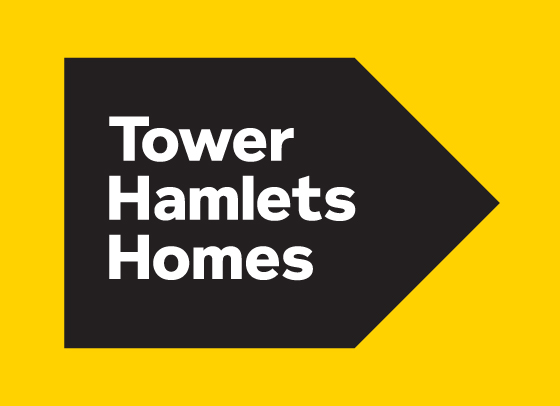I along with Cllr Ehtasham Haque (Blackwall and Cubitt Town), Cllr Gabriela Salva (St. Peters), Cllr Shad Cowdhury (Spitalfileds and Bangla Town), Cllr Shah Shuhel Ameen (Whitechapel) have signed a ‘Call In’ asking for the decision by the Mayor to be reconsidered. The meeting at the Council will be at 6 pm, Wednesday 14th August 2019. Please find below the text of the ‘Call In’
REPORT TITLE/DATE OF CABINET MEETING
Strategic
Review of Tower Hamlets Homes. Cabinet
Wednesday,
31st July, 2019 5.30 p.m.
http://democracy.towerhamlets.gov.uk/ieDecisionDetails.aspx?AIId=100053
REASONS FOR “CALL IN”
Tower Hamlets Council Constitution outlines principles of decision-making as d) a presumption in favour of openness.
We believe that the decision did not abide by this principle.
The cabinet report LBTH/THH Strategic Review of Housing Management Options information was and seemed biased towards the extension of ALMO, for example,
“3.7.3 However, a number of other authorities have extended their ALMO Management Agreements, typically for a period of five to ten years with some extending by up to 30 years. These include Barnet, Lewisham, Blackpool, Barnsley, Brent*, Derby and Solihull.”
This is misleading. In fact, BrentCouncil decided to bring its housing stock into council control as stated in the Altair.
None of the examples given in the Cabinet report had extended their ALMO contract for more than 15 year, in fact all had extended for ten years other than Blackpool, with four out of six due to expire in 2021.
- Barnet set to expire in 2028 (ten year extension)
- Lewisham set to expire in 2027 (ten year extension)
- Blackpool, set to expire in 2021 (fifteen year contract)
- Barnsley set to expire in 2021 (five year extension)
- Brent* has brought it services in house
- Derby set to expire in 2021 (ten year extension)
- Solihull set to expire in 2021 (five year extension)
Furthermore, noting the Council’s Constitution; “2.4 Community Engagement/ Consultation. The level of community engagement or consultation required will be appropriate to the nature of the matter under consideration having due regard to the Council’s Community Engagement Strategy.”
The Council engaged Altair to draw up proposals for the Mayor to consider. However, the Tower Hamlets Council consultation was conducted over four weeks, this level of community engagement does not meet the threshold of the 12 week consultation period expected of Tower Hamlets consultation.
Of the 21,000 homes of council-owned stock (comprising social rented homes and former right-to-buy leaseholder homes), Tower Hamlets Council consulted with a total of 197 residents who responded by email or telephone (85 leaseholders and 74 tenants).
Not only falling short of the Government Code of Practice on Consultation 2008, but also lacking meaningful engagement that other boroughs have undertaken when holding similar consultation such as Westminster City Council which held open door / listen events to consult residents:
“Five open door events and more than 13 listening events across the Westminster borough were attended by over 660 people. Attendees were able to have individual consultation time of at least 30 minutes and over 600 people took this opportunity to explain their issues and the improvements required.”
Moreover, although there is no legal requirement to ballot estate residents on management agreement, it could be seen as good practice and we point to Altair report 9.5.2. Paragraph 3.7 of the paper supporting the extension of the additional two years notes: “The DCLG recognises the ballot as the preferred mechanism for the majority of authorities in testing their tenants` opinions in respect of changes to management arrangements; it is not a legal requirement”. The paper further notes in paragraph 3.8: “However, a wider consultation with residents on how they view the housing services should be delivered will be conducted before the Management Agreement expires in 2020 (should the extension be agreed).”
Last, the report was unable to consider the impact of lifting the Housing Revenue Account (HRA) debt cap, which had only just been announced. There is the need for greater economic modelling of options and as the Altair report stated “We did not find evidence of substantial tracking of financial VfM KPI data.” Further resource should be placed towards investigating the saving and cost benefits of housing options. The level of risk regarding ‘changes to the status quo’ could be reviewed so as to include the possible benefits of bring services in-house as has been recognised by APSE’s ‘Insourcing update: The value of returning local authority services in-house in an era of budget constraints’
ALTERNATIVE COURSE OF ACTION PROPOSED
For the reasons outline above we would ask that the O&S committee refer the decision to a full council meeting.
That the Tower Hamlets Homes contract is extended for a maximum of two years so as to undergo a full consultation exercise and allow for a full resident lead appraisal of Option 1: In-house Management.
The council should invite and establish a ‘peer review’ in which residents and TRAs use their experience and expertise to examine the progress and likelihood of successful delivery of housing options.
An independent advisor with experience in finance, risk and partnerships should be appointed to assist the “peer review” to fully engage with economic and governance modelling of housing options.
That the council put together economic modelling which reflects the financial implications of Option 1: In-house management, and this be made available to a ‘peer review’ prior to any decision being taken.
To incorporate the lifting of the Housing Revenue Account (HRA) debt cap in an economic modelling of financial implications of options.
That a full risk register, and comprehensive risk assessments, for the housing options be made available to the ‘peer review’ and made public prior to any decision being taken. This should work backwards from what can go wrong, setting out where risk arises and the remedy for managing risk i.e. accept it, control it, transfer it, or avoid it.


Recent Comments